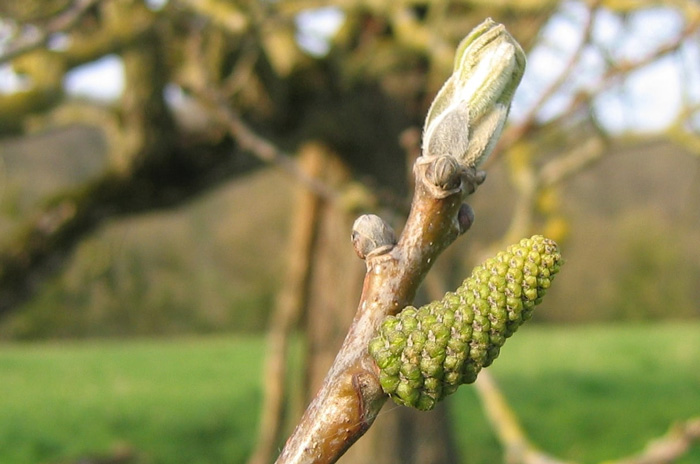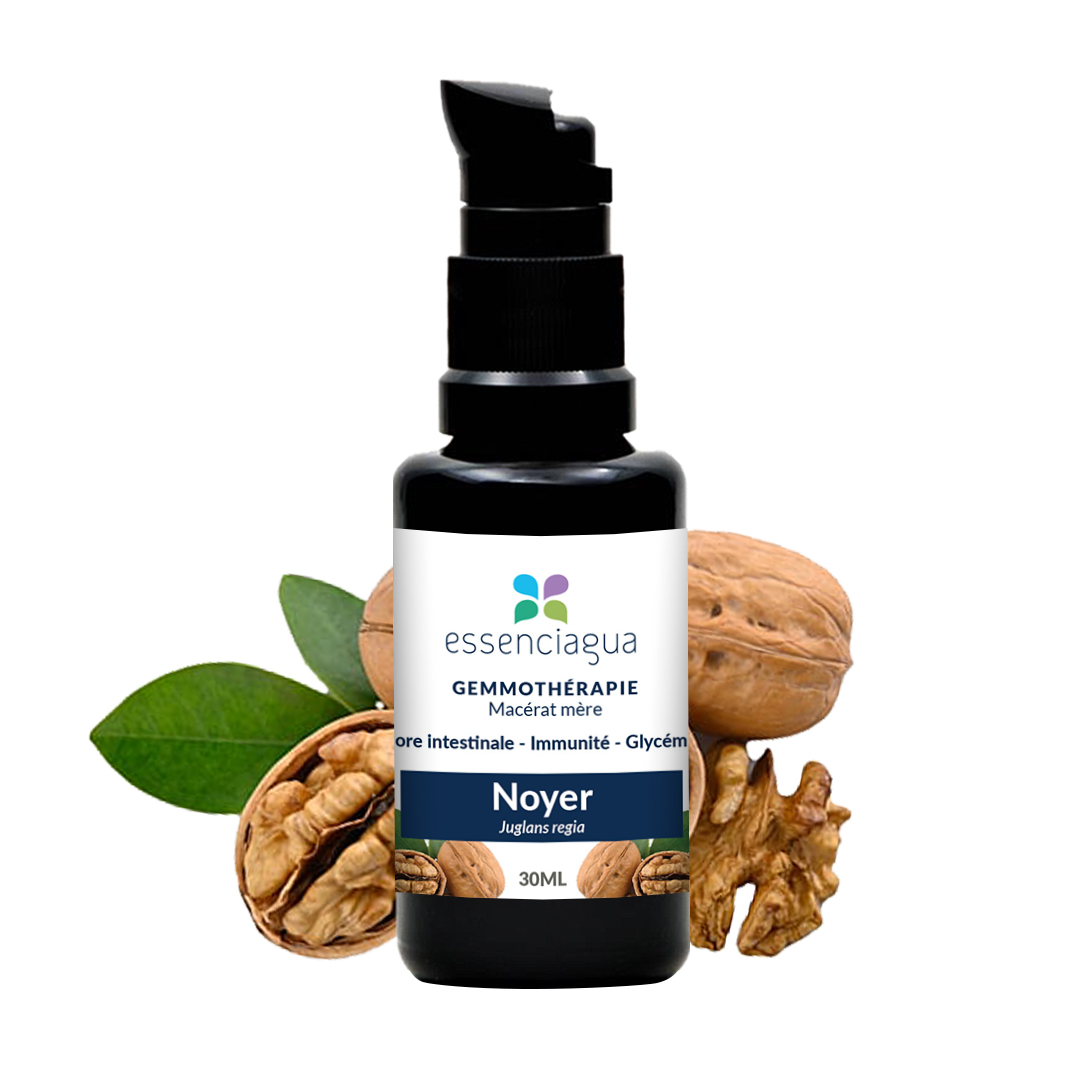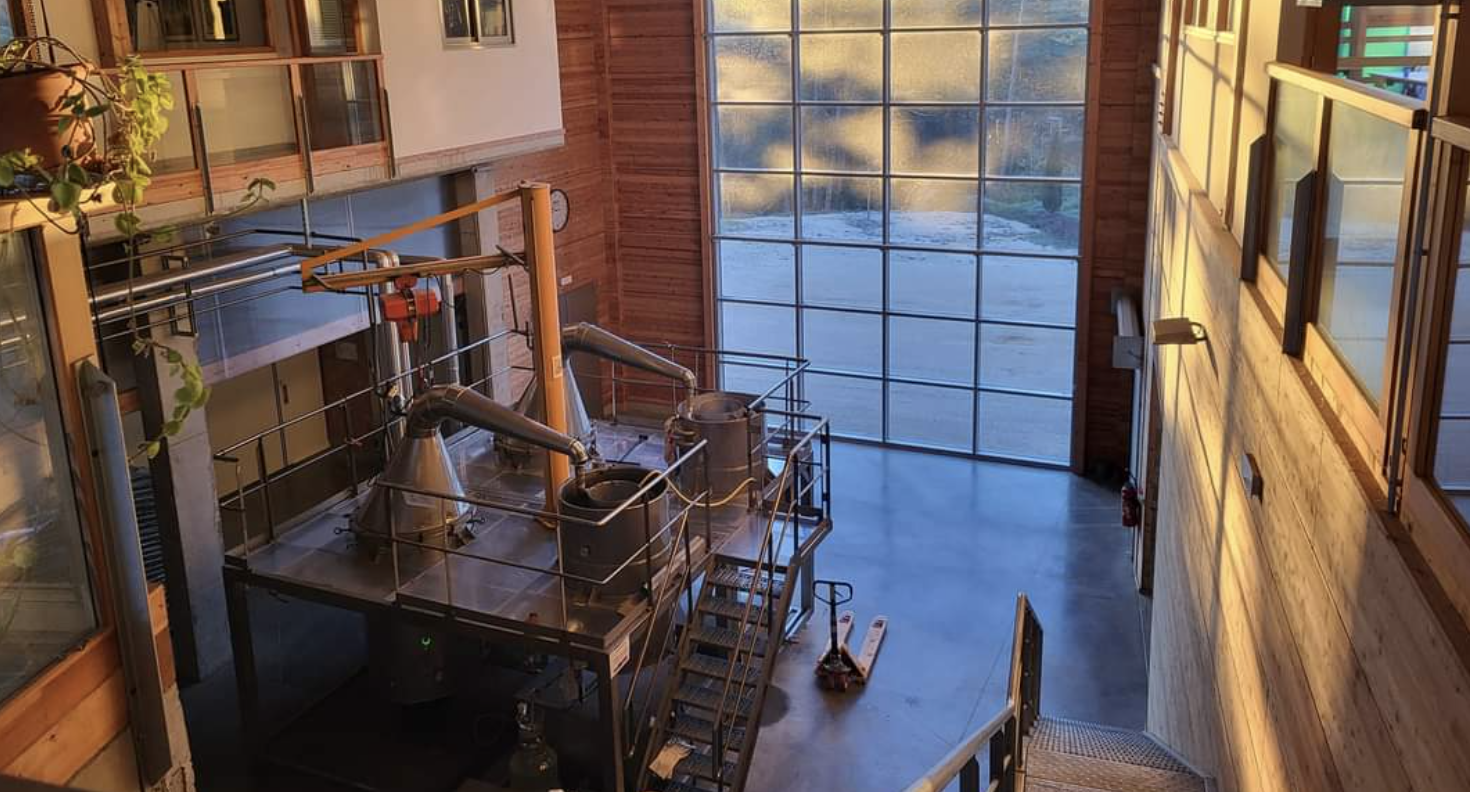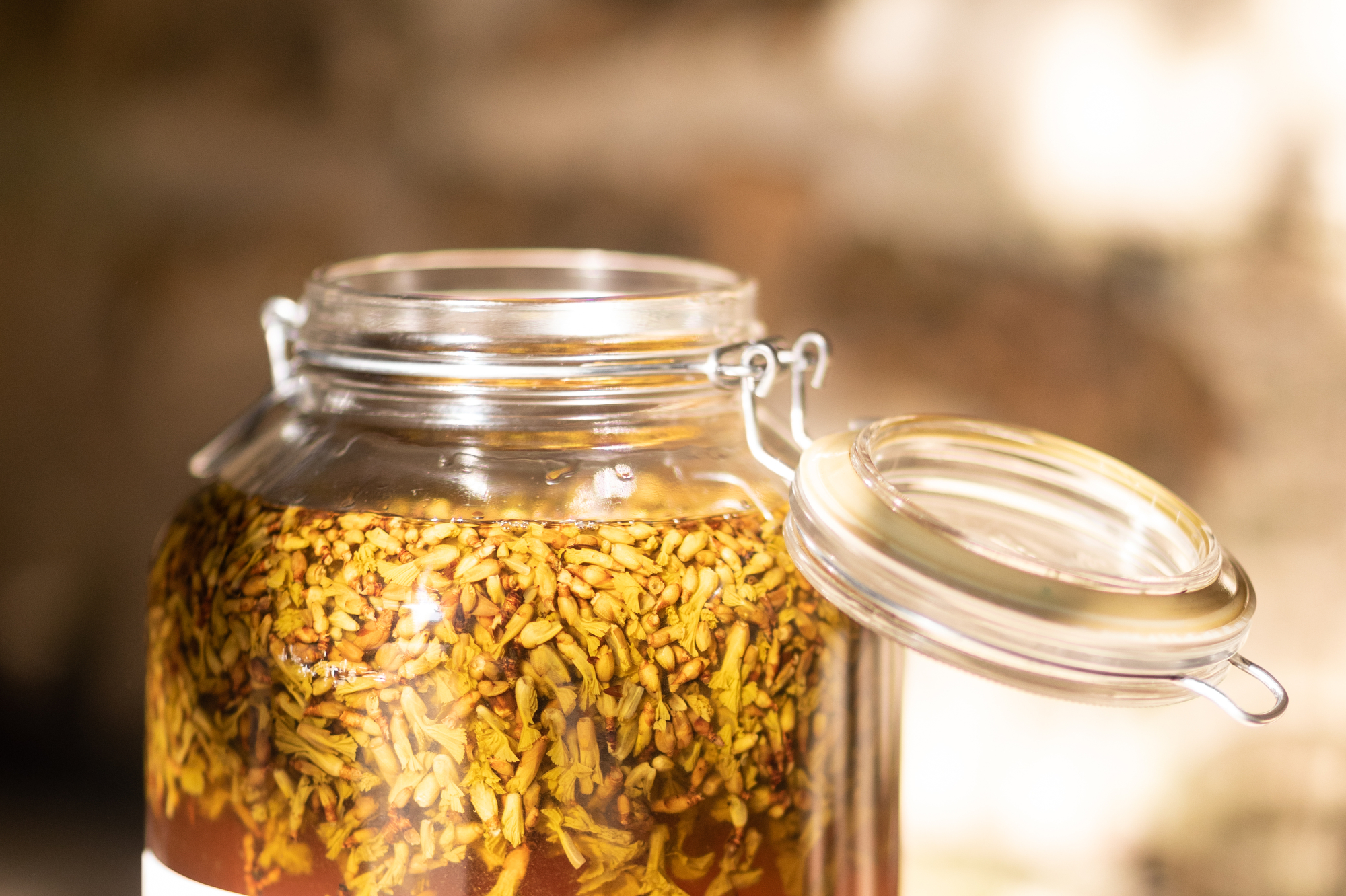The plant

Botanical Family : Juglandaceae
Other names : Gland de Jubiter, noyer royal, gland divin, etc
Plant part: Bud
Origin: France
Jovis glans or Jupiter's glans is the Latin origin of Juglans, like a gift to men from the God of the Roman Gods. Walnut is believed to have a Persian origin; it would have crossed Greece and Italy to reach France.
The wild walnut is a solitary tree that reigns in the area; it can reach 20 to 30 m and live 300 years. It offers dense and particularly cool shade which indicates the presence of water. Light and heat are also essential for its development: its buds are late and the fall of its leaves particularly early.
Anne-Laure and Bruno Weiler “At the heart of oneself, at the heart of the trees” offer us an original approach to walnut. If it offers the observer a harmonious whole, it is a general balance of forms built on a very tortuous whole: trunk not completely rectilinear, branches which change direction suddenly, absence of symmetry, as if the tree was looking for the best way to grow. General harmony would therefore be to be found in this flexibility and this capacity for adaptation – “All paths are possible, but it is necessary to choose one at each new stage of existence”.
Pitera recommends walnut macerate in periods of mental confusion, and “loss of ability to decide in the event of changes”. Let us therefore take advantage of walnut to also “listen to the movement of life” and decide on the direction to take.
What are the benefits of organic Walnut bud macerate in gemmotherapy?
In gemmotherapy, walnut bud macerate:
Helps restore and balance the intestinal flora
Supports the pancreas which it helps to energize and regenerate. Thus participates in the regulation of blood sugar.
Helps support and regulate the immune system and increase the body's resistance to the risk of infection
Contributes to the maintenance of healthy skin, particularly in chronic suppurative processes
Intervenes to support the liver and participates in blood purification
Helps to cope with changes.
The Products

Organic Walnut bud macerate
Walnut bud macerate plays a major role, particularly as a regulator of intestinal flora and support of the pancreas.
See product










